A Definitive Ranking of Every Black Mirror Episode
- Oops!Something went wrong.Please try again later.
- Oops!Something went wrong.Please try again later.
The post A Definitive Ranking of Every Black Mirror Episode appeared first on Consequence.
After 12 years, six seasons, 26 regular episodes, and two specials, it remains impressive that Black Mirror continues to find new stories to tell. Installments of the anthology series veer from romantic comedy to blackest horror with glee, episodes typically unified by an askew take on technology and its role in our lives — though creator Charlie Brooker hasn’t always felt compelled to hold to that brief, as the show’s most intriguing moments often reveal.
Black Mirror has undergone some significant changes over the years, primarily following Season 2, when the show was acquired by Netflix. At that point, the budgets got a little bigger and the casts got a lot more American (though every season still centers British talent in a few episodes), as Brooker’s focus also began to expand in ways that have helped the show find its current longevity.
Consequence is using the premiere of Black Mirror’s sixth season as an excuse to look back at the show in full (so far) and evaluate what’s come up until now. Key to our ranking strategy was recognizing the qualities that define Black Mirror as a series: the twists and the terror, plus the drama and even laughs that occur in between. For, while every season features a burst of new ideas from Brooker, the great episodes are the ones where the twist doesn’t just change the tone or direction of the story, but make us totally rethink what we were watching. The very best episodes, meanwhile, make us rethink everything — especially the ways in which our own cracked screens have changed our lives.
— Liz Shannon Miller
Senior Entertainment Editor
28. “Men Against Fire” (Season 3, Episode 5)
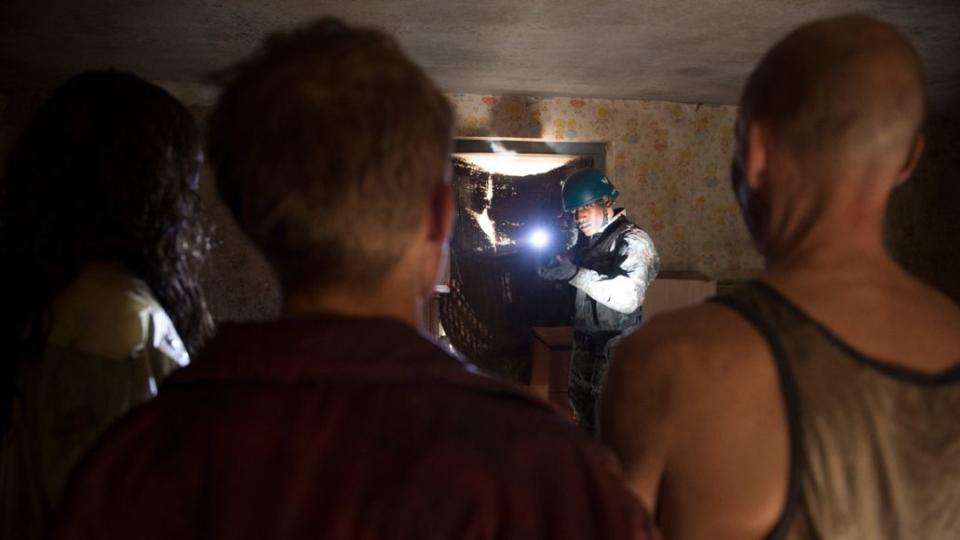
Black Mirror (Netflix)
It’s not the darkness of the central twist which led to “Men Against Fire” getting ranked here at the bottom; the issue comes in the storytelling, which combines all of Black Mirror’s worst qualities (lack of subtlety, reliance on cliches, defaulting to the most cynical ending possible) with nothing redeeming in balance. Malachi Kirby delivers a commanding lead performance, and you’ll also spot The Handmaid’s Tale’s Madeline Brewer, House of Cards’s Michael Kelly, and Sarah freakin’ Snook from Succession in the cast. However, while the central message is important, the clunky writing and obvious twist undercut all that potential goodwill. — L.S. Miller
27. “Arkangel” (Season 4, Episode 2)

Black Mirror (Netflix)
Director Jodie Foster (for real!) gets a great performance out of Rosemary DeWitt, as the acclaimed stage actress plays a single mother who can’t resist taking advantage of sophisticated new nanny-cam technology that lets her monitor her daughter to an extreme degree. Unfortunately, it’s exactly the kind of episode Black Mirror critics often reduce the show down to: a polemic on a fictional technology being evil. In this case, the criticism is accurate. — L.S. Miller
26. “The National Anthem” (Season 1, Episode 1)
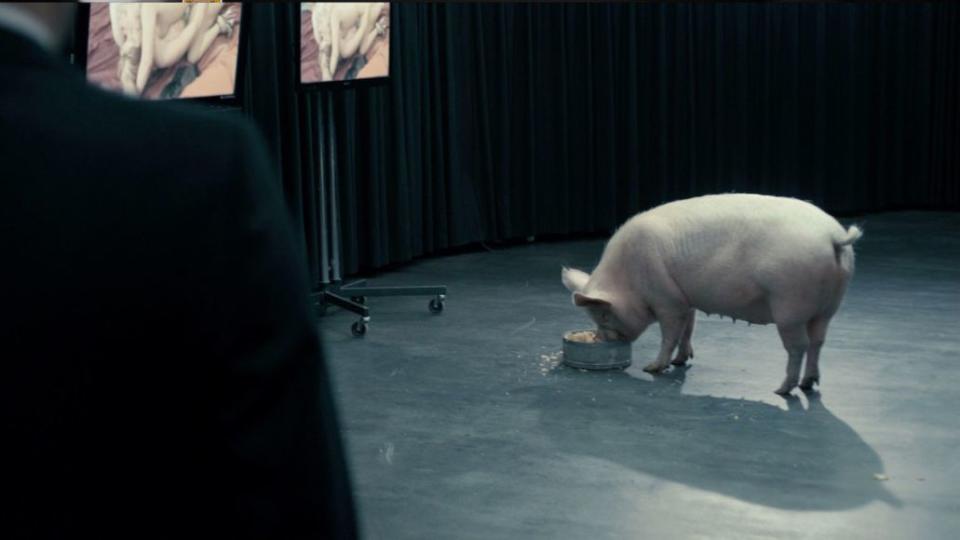
Black Mirror (Netflix)
If there’s one thing nearly all Black Mirror fans tell new viewers, it’s “skip the first episode.” Sure, having a plot that’s shocking or even gross isn’t all that uncommon for the series, but the show’s debut is a prime (and rare) example of the creators going a little too dark without having sufficiently poignant messaging to justify it. It’s like throwing out the wings and just downing a bottle of the most dangerous hot sauce you can get your hands on — you’ll definitely have a reaction, but you can’t really call it a meal. — Jonah Krueger
25. “Crocodile” (Season 4, Episode 3)
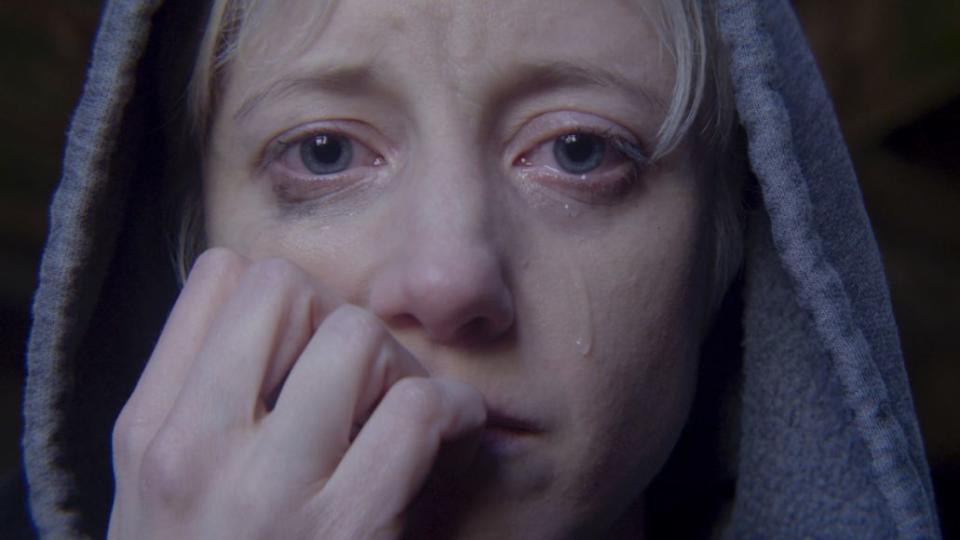
Black Mirror (Netflix)
This is one of the show’s most Hitchcock-ian episodes to date — if Alfred Hitchcock could imagine a future where pizza gets delivered by remotely operated minivans, and insurance investigators have the ability to literally look at and capture your memories while investigating claims. Once again, the performances are great, with future Oscar nominee Andrea Riseborough proving to be a real standout as an architect trying to cover up a dark secret from her past, only to find that trying to cover up one murder with another murder can quickly get out of hand. However, it’s an unnecessarily violent and grim story, and the surveillance tech at its center isn’t all that exciting. — L.S. Miller
24. “Smithereens” (Season 5, Episode 2)
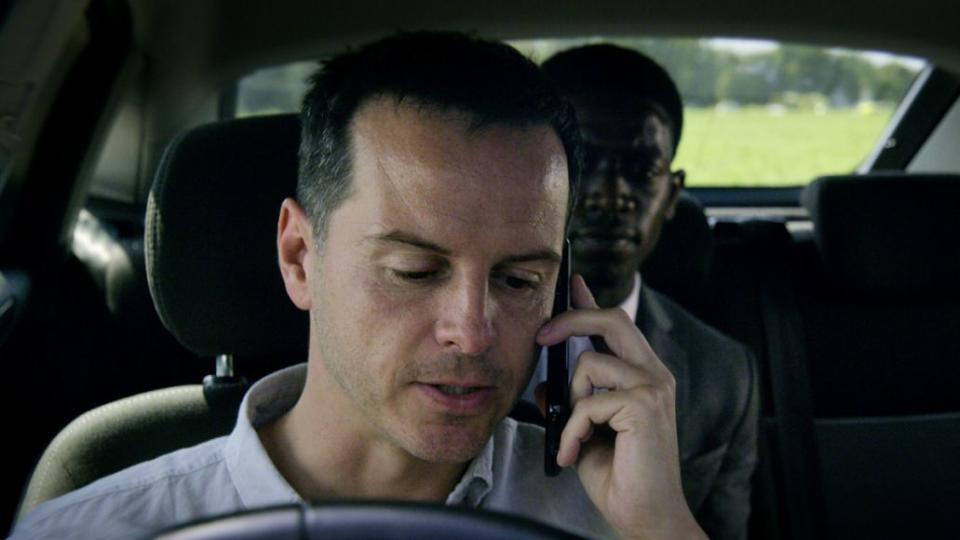
Black Mirror (Netflix)
While Andrew Scott is increasingly getting his due as one of today’s most compelling actors, he’s a little bit lost in this relatively straightforward hostage scenario, which ends with the blunt message that… we’re all addicted to social media and our phones. Sometimes, profound revelations can come from a Black Mirror episode, but not with this one. Topher Grace going full Jack Dorsey in his portrayal of a tech company CEO is at least a little fun, though. — L.S. Miller
23. “Mazey Day” (Season 6, Episode 4)
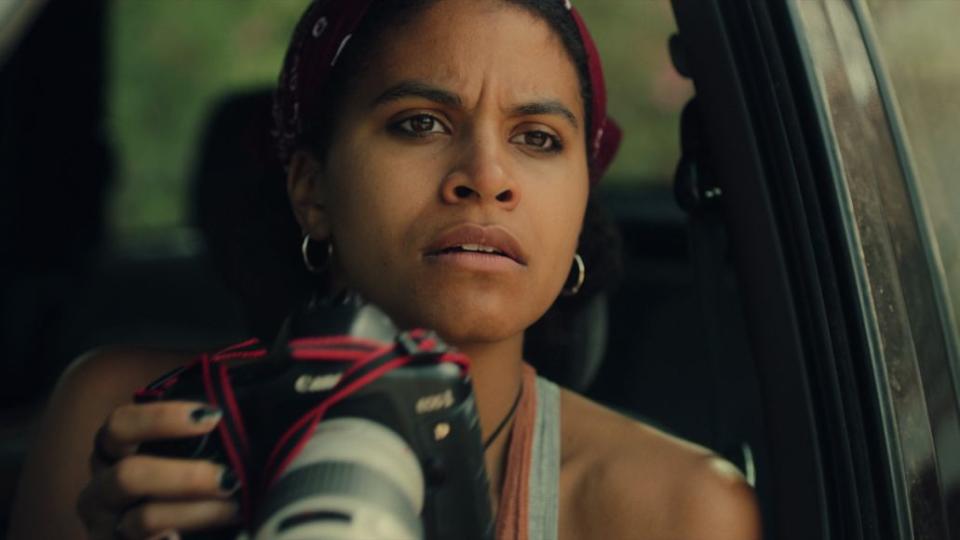
Black Mirror (Netflix)
At just 40 minutes, “Mazey Day” commits the crime of underutilizing star Zazie Beetz, who doesn’t get as much meat as she deserves. However, the episode does deserve huge praise for that runtime — or at least not trying to pad out this 2006-set tale of a paparazzi photographer trying to hunt down a huge payday. When not glorying in the hyper-specificity of 2006 technology (the iPod shuffle!), this one is pretty memorable for the extreme nature of its twist, which pushes Black Mirror into a whole new realm of genre storytelling… One which doesn’t quite work, when compared to some of the series’ best moments. But as an experiment, it’s at least fun to find out exactly where “Mazey Day” wants to go. — L.S. Miller
22. “The Waldo Moment” (Season 2, Episode 3)
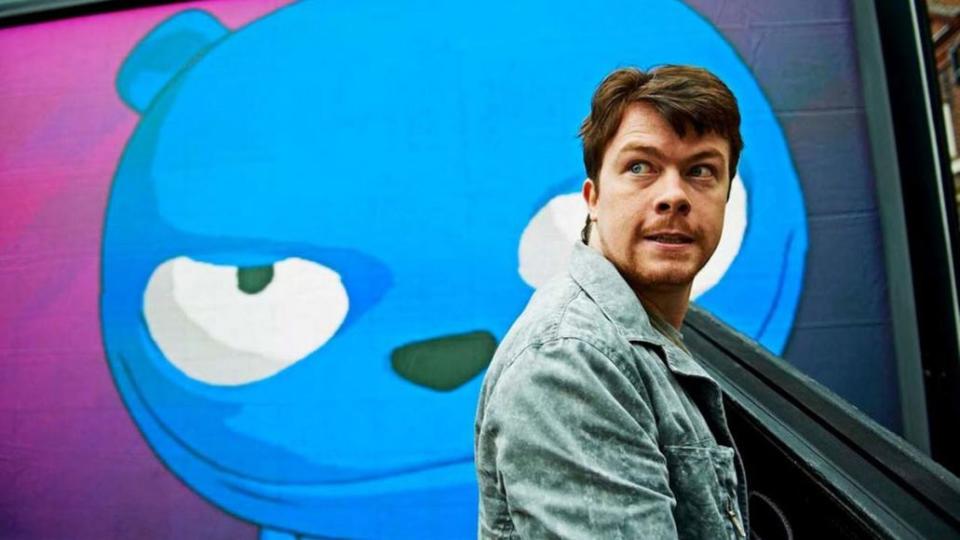
Black Mirror (Netflix)
What was intended to be a timely satire felt outdated even before it was released. Charlie Booker imagined an election in which a cartoon bear, a Gorillaz-style avatar named Waldo, could become a popular political candidate by behaving rudely. “The Waldo Moment” takes a condescending view of voters while misjudging the rising wave of nationalism that would soon lead to Brexit and Donald Trump. But even if it hadn’t gotten identity politics flipped around with an identity-free bear, it would still fail to offer much in the way of suspense or emotional payoff, especially as the plot is well-worn and the characters are hard to invest in. “The Waldo Moment” offers nothing but bleakness, without even the consolation of being right. — Wren Graves
21. “Loch Henry” (Season 6, Episode 2)
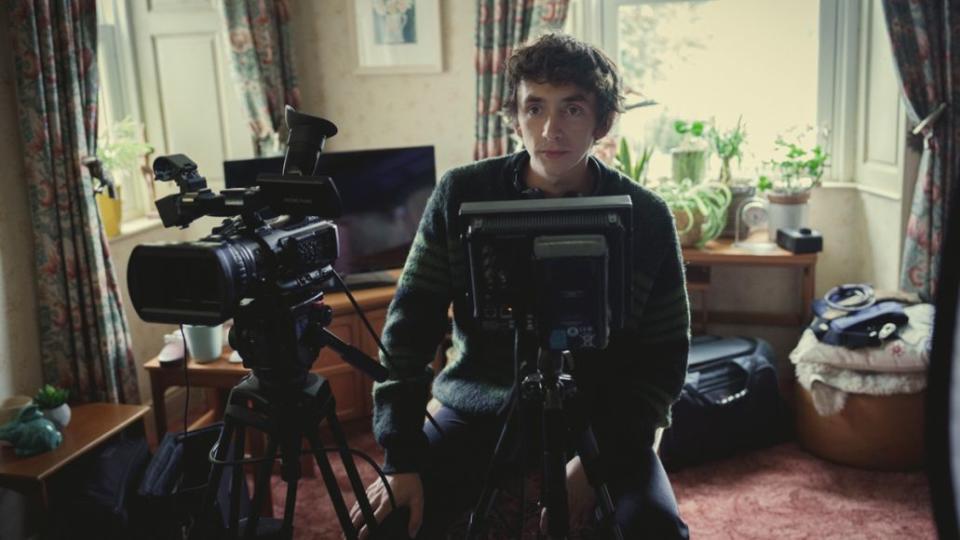
Black Mirror (Netflix)
There’s nothing like a murder in the English countryside, is there? That’s the cheeky undercurrent of this episode, which plays as a love letter to VHS (specifically the ability to take a tape and record over the previously existing footage — a key element to the narrative). The meta aspects of this story aren’t as intense as others on this list, yet after “Loch Henry” reveals its core twist and commits fully to thriller mode, those meta aspects do help elevate the rest of the narrative to more than just a spooky country horror story… just barely. It’s maybe not the most memorable Black Mirror, but there is one small Easter egg that makes you revaluate another Emmy-winning installment (which appears much further down in this list). — L.S. Miller
20. “Metalhead” (Season 4, Episode 5)
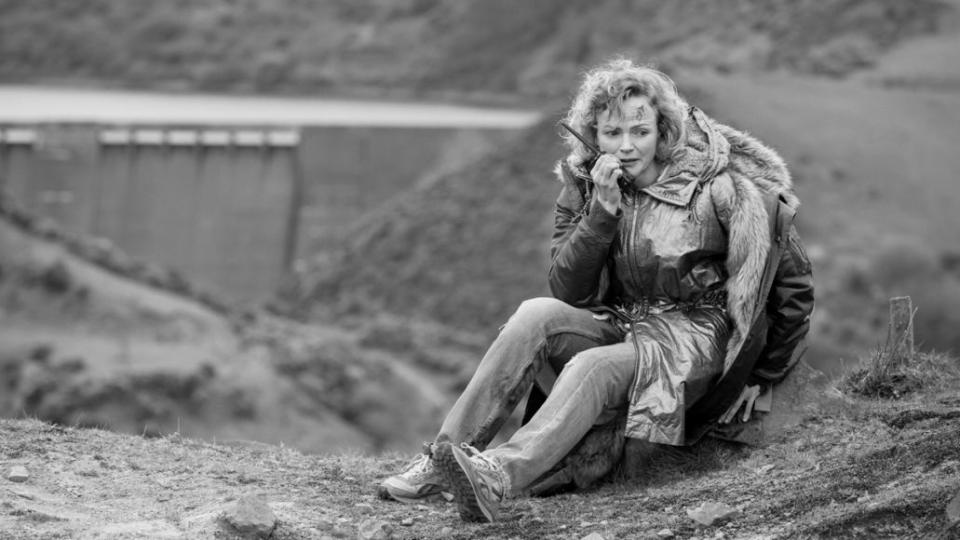
Black Mirror (Netflix)
Stylish and minimalist in black and white, the only real crime of “Metalhead” is that it’s just a bit forgettable. One of the shortest Black Mirror episodes, clocking in at just 41 minutes, it’s a fairly straightforward endeavor through a robot-ridden, post-apocalyptic hellscape. We as the viewer never learn why the robotic dogs are tracking humans or hunting them down; we don’t have too much reason to care about Bella (Maxine Peake), our protagonist. “Metalhead” is stripped down to the most primal and basic points: Run. Hide. Fight. Survive. — Mary Siroky
19. “Beyond the Sea” (Season 6, Episode 3)
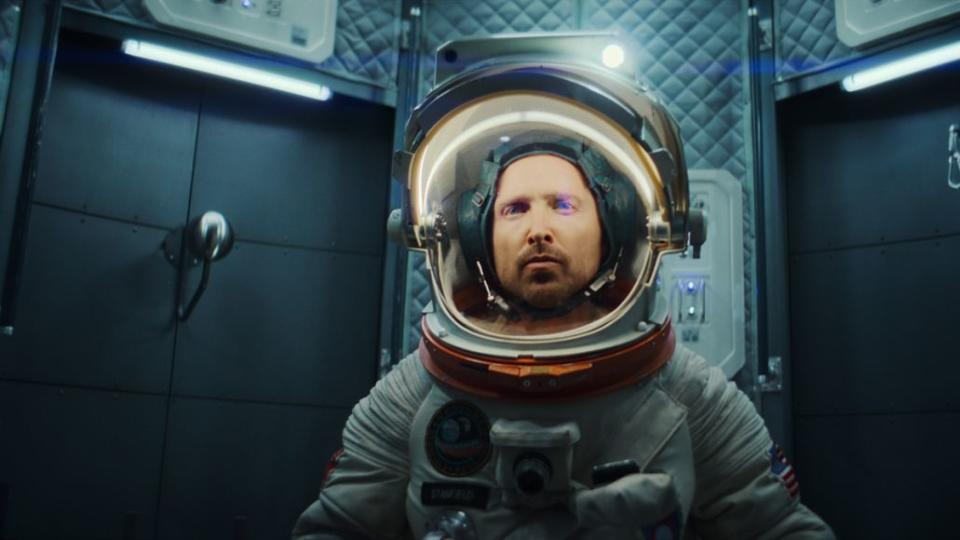
Black Mirror (Netflix)
Both Aaron Paul and Josh Hartnett deliver strong performances in this 80-minute installment, set in an alternate 1969 where astronauts on long-term space missions are able to leave robot duplicates behind on Earth, who can keep them connected with their families back home. However, a Black Mirror episode always flounders if the time between the viewer figuring out where this story is going and the story delivering its inevitable final twist is too long — and in this case, the inevitable drama at the center of the story becomes apparent way too early, making a good portion of the episode a depressing slog. The final moments, though, are impressively free of catharsis, making it one of the show’s more haunting endings to date. — L.S. Miller
18. “Striking Vipers” (Season 5, Episode 1)
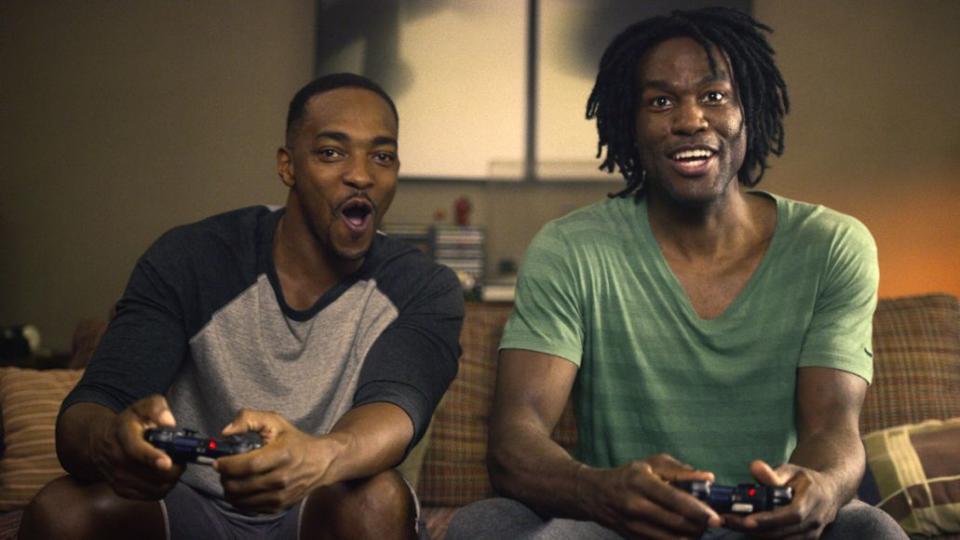
Black Mirror (Netflix)
Anthony Mackie! Yahya Abdul-Mateen II! The spectrum of sexuality, examined via virtual reality! While certainly not as memorable as Black Mirror’s finest story about queer love in the virtual space — that’s coming later in this list — “Striking Vipers” is still an hour well spent, and there’s certainly something to be said about its perspective on the homoeroticism and primality tied to video games like the one depicted here. The episode is also noteworthy as the show’s first to focus on an all-Black central cast. — M. Siroky
17. “Rachel, Jack and Ashley, Too” (Season 5, Episode 3)
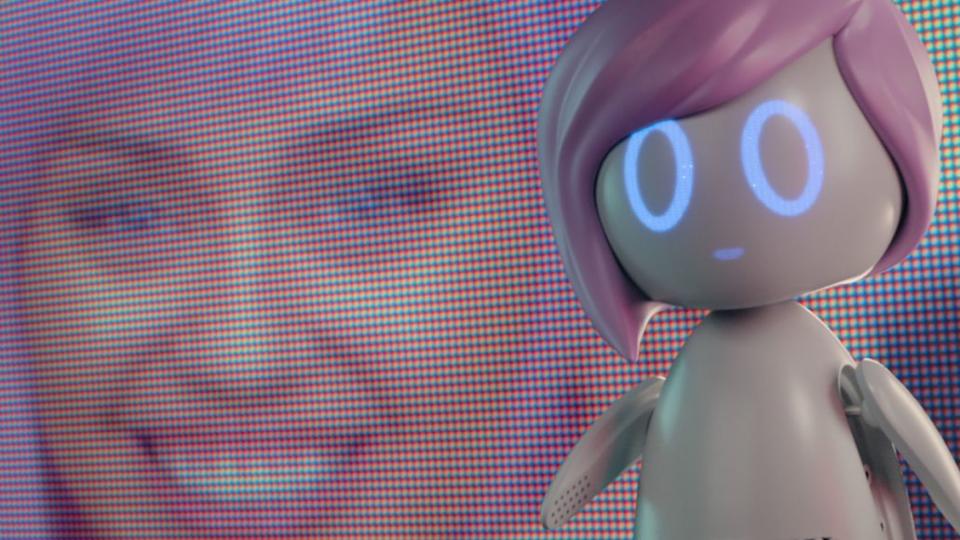
Black Mirror (Netflix)
Everyone else also had “On a Roll,” as performed by Miley Cyrus as Ashley O, in their 2019 Spotify Wrapped, right? With “Rachel, Jack and Ashley, Too,” it was incredibly fun to see Cyrus slip back into television acting for a role that feels connected to so much of her story as a Disney megastar. (Plus, Angourie Rice is adorable as the episode’s chief fangirl.)
While not one of the tensest episodes of the show, it was the music that pushed “Rachel, Jack and Ashley, Too” further into the mainstream, getting it to land on the radars of some folks who might have never been this aware of Black Mirror. Miley Cyrus is back with some boppy new songs…that are covers of Nine Inch Nails songs? We’re listening — in fact, we’re still listening to those songs today. — M. Siroky
16. “Bandersnatch” (Special)
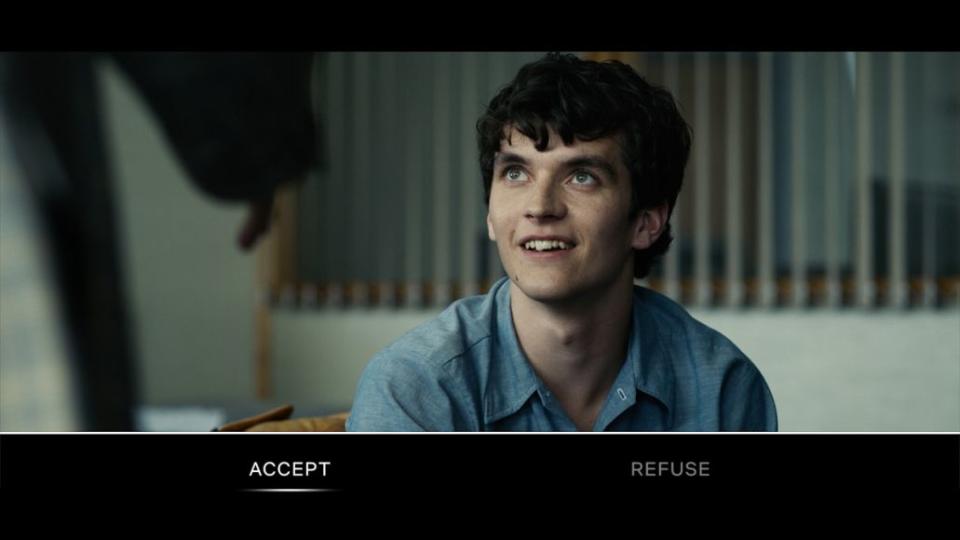
Black Mirror (Netflix)
This was a fun little novelty, wasn’t it? While the choose-your-own-adventure gimmick of this one-off failed to become filmmaking’s new frontier, “Bandersnatch” did capture the minds of television fans for a solid week. Making flow charts and trading which choices you made on your first go was a genuinely fun experience, but, despite its flashy structure and notable performances, “Bandersnatch” didn’t have much in the way of staying power. It was Black Mirror’s biggest fad — red hot upon release, but one you rarely hear about anymore beyond lists like this. — J. Krueger
15. “White Christmas” (Special)

Black Mirror (Netflix)
“White Christmas” is a doozy of a Black Mirror episode — and it should be, given it’s the Christmas special. The last installment before the series moved over to Netflix, “White Christmas” packs in more ominous sci-fi concepts than perhaps any other episode. There’s special technology that allows you to see through others’ eyes in real-time, artificial intelligence, artificial time dilation, and the ability to “block” people in real life. Put all together, it’s one of the more ambitious episodes of the series, and one that gives its leads (Jon Hamm and Rafe Spall) a chance to really shine. — J. Krueger
14. “Hated in the Nation” (Season 3, Episode 6)

Black Mirror (Netflix)
One of Black Mirror’s stronger feature-length episodes (its longest to date, in fact), the premise of this one sounds a little silly once you say it out loud (as so many of these premises do). That said, this contemporary mystery has X-Files vibes in the best way, as a Chief Inspector (Kelly MacDonald) and her fellow detectives attempt to figure out what’s causing the deaths of people who have become social media pariahs. While the episode premiered in 2016, a year before the word “canceled” took on a whole new meaning, it remains a chilling and compelling thriller, with MacDonald proving how easily she could carry a police procedural series, should she ever be interested. — L.S. Miller
13. “Joan Is Awful” (Season 6, Episode 1)
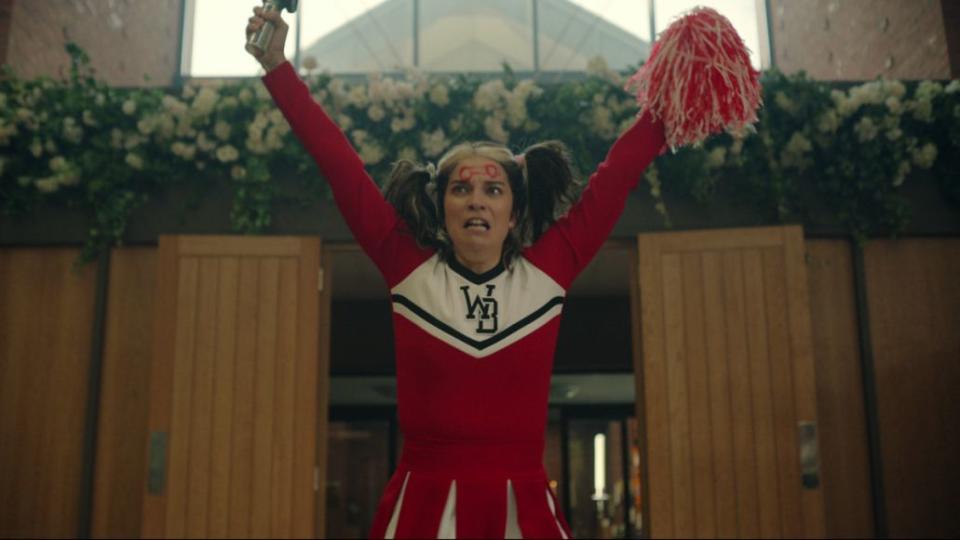
Black Mirror (Netflix)
Black Mirror covers so many different intersections between technology and humanity, but “Joan Is Awful” is one that directly references the future of entertainment. It’s one of the more meta-heavy episodes of the show, dealing with the tension between real-life events and their immediate dramatization, while introducing “Streamberry” as a Netflix-esque service generating content via A.I. and deepfakes. While centering Joan’s misery on she “didn’t read the terms and conditions” is a bit of a cop-out, Annie Murphy, Salma Hayek, and the rest of the episode’s hilarious supporting cast make “Joan Is Awful” a riveting ride. — Paolo Ragusa
12. “Black Museum” (Season 4, Episode 6)
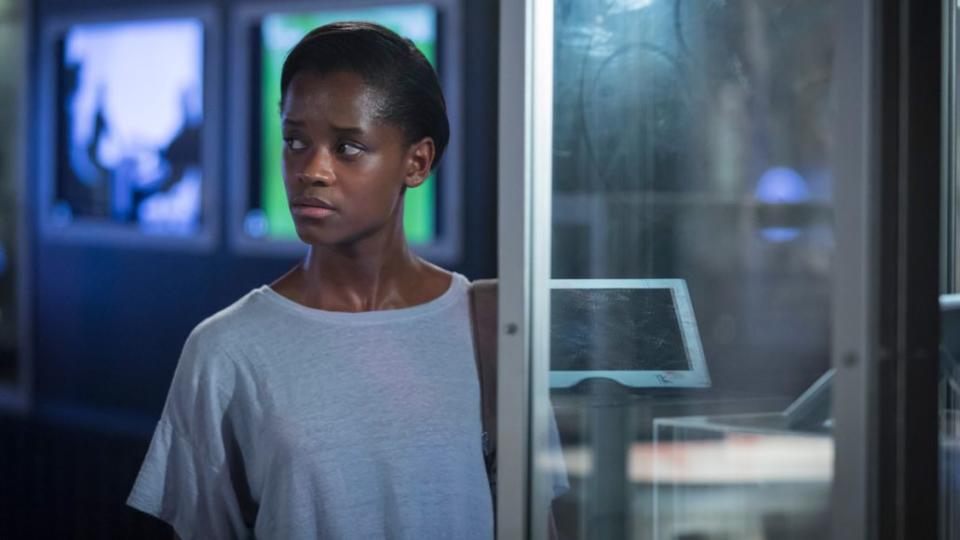
Black Mirror (Netflix)
If any show was going to be able to pull off an anthology within an anthology, it was this one. This memorable framing story, anchored by an incredible performance from Letitia Wright, offers some of Black Mirror’s most upsettingly sharp commentary about the world around us to date. Wright earned herself an Emmy nomination for her performance as Nish, a woman who seems to stumble upon a dusty, macabre roadside collection of oddities. Once her connection to the museum is revealed, the episode sticks the landing. — M. Siroky
11. “The Entire History of You” (Season 1, Episode 3)
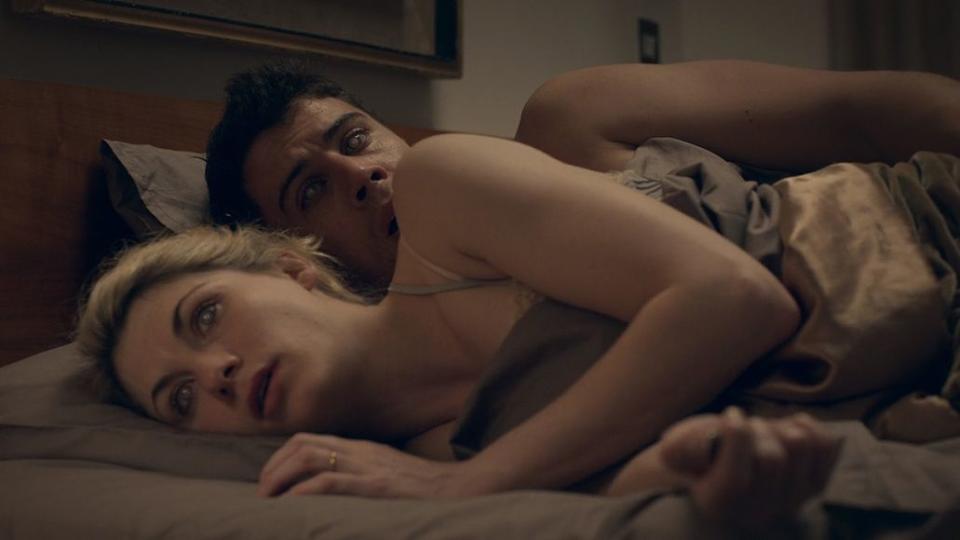
Black Mirror (Netflix)
The conundrum of an unreliable memory is “solved” in “The Entire History of You,” an episode that quickly underscores just how much of a blessing it is to sometimes be able to forget. Centered around memory device implants, this entry is actually more of a story of marital strife, walking through a few days in the life of a couple whose trust has fractured. “The Entire History of You” is Black Mirror worldbuilding at its finest — it doesn’t over-explain the premise and trusts its audience to come along for the ride. — M. Siroky
10. “Be Right Back” (Season 2, Episode 1)
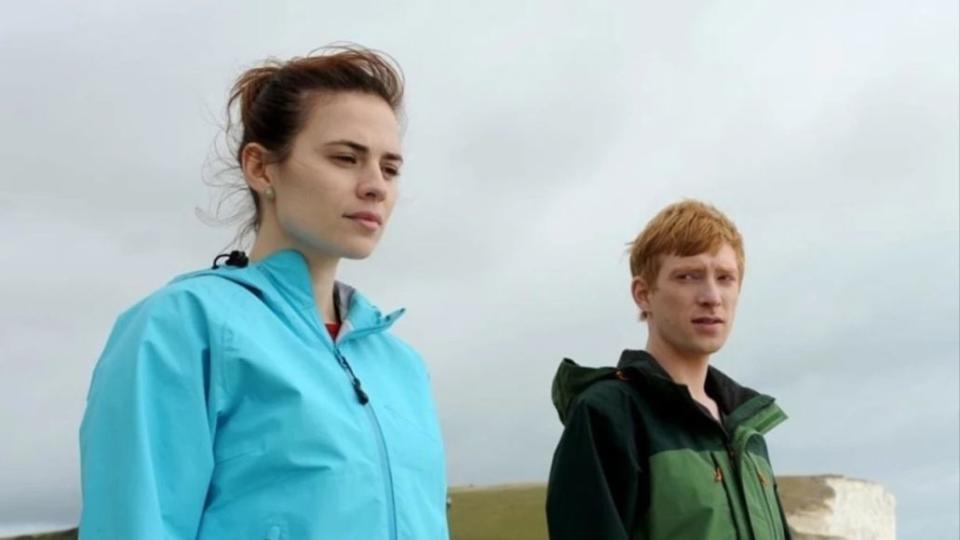
Black Mirror (Netflix)
“Be Right Back” is a stunning meditation on grief. The story follows Martha (Hayley Atwell) as she copes with the death of her partner, Ash (Domhnall Gleeson), eventually becoming so desperate to have him back that she uploads his memories and personality to a synthetic body. As Martha struggles to connect with her faux-beau, she realizes that, of course, the real Ash could never be replaced. But the story is made all the more impactful by Atwell’s remarkable performance, playing out Martha’s struggle with tenacity and courage. Even more rewarding is the idyllic English countryside setting, which serves as an ironic foil to the perfect life that Martha had initially planned for. — P. Ragusa
09. “Demon 79” (Season 6, Episode 5)
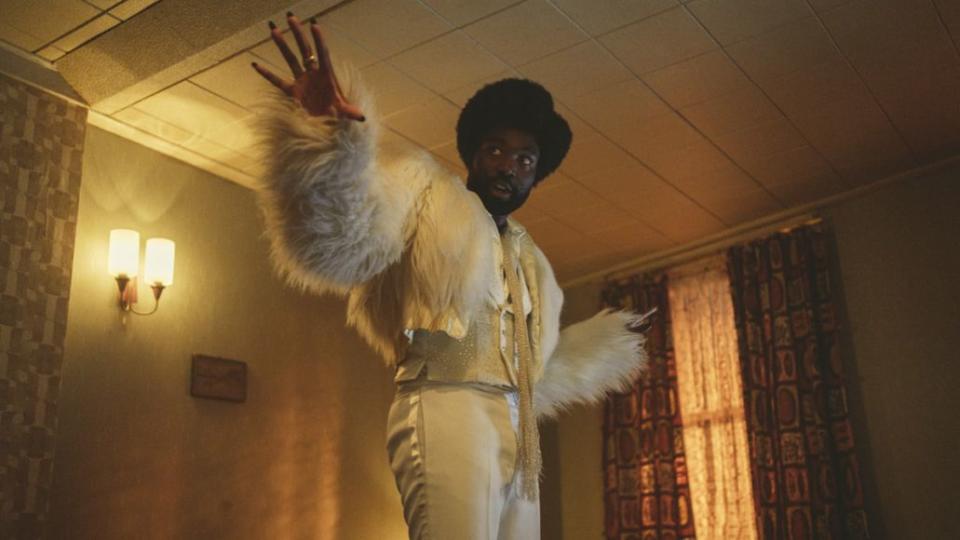
Black Mirror (Netflix)
Demon 79 lovingly evokes so many of the masters that inspire Black Mirror. The horror of a quiet woman pushed into a killing spree recalls Stephen King’s “Big Driver,” the quippy demon sidekick could have been borrowed from the fantasy comedies of Terry Pratchett, and that ancient rune is straight out of H.P. Lovecraft. But the episode never feels like pastiche thanks to a towering three-act performance from We Are Lady Parts’ Anjana Vasan. The fear, the fall, and the reinvention of her character Nida Huq is as moving as it is frightening, while director Toby Haynes tackles the 1970s setting with Grindhouse glee. Instantly, Nida becomes one of Black Mirror’s most vivid inhabitants. — W. Graves
08. “Fifteen Million Merits” (Season 1, Episode 2)
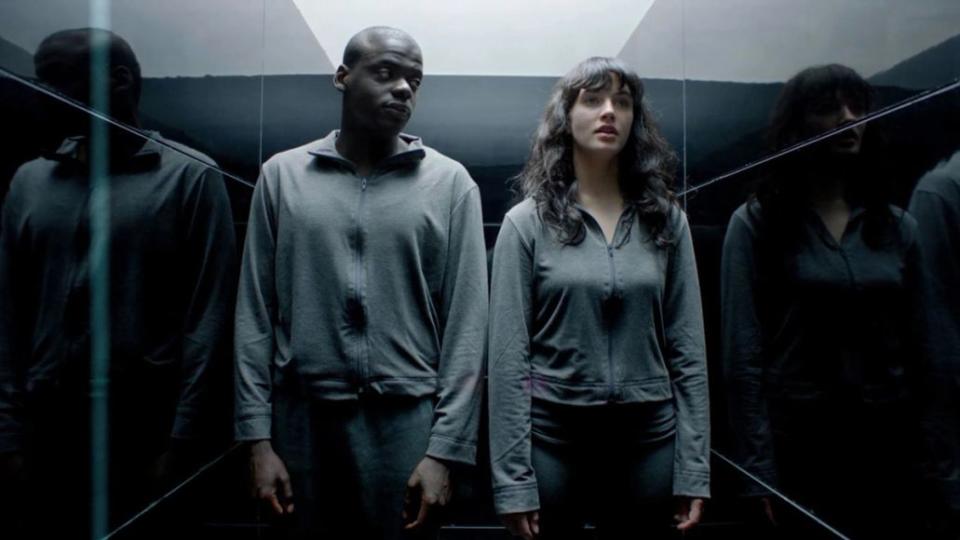
Black Mirror (Netflix)
One of the great examinations of attention economies, “Fifteen Million Merits” takes place in a society where currency buys you a small amount of control over the media you consume. Bing (Daniel Kaluuya) works by generating electricity at a stationary bike, and one day after hearing Abi (Jessica Brown Findlay) sing, he decides to back her for a talent competition, Hot Shots. Come for the dystopian world-building and the swings at American Idol, stay for one of the series’ best twist endings, as “Fifteen Million Merits” presents a nuanced, deeply distressing relationship between commerce and dissent. — W. Graves
07. “Playtest” (Season 3, Episode 2)
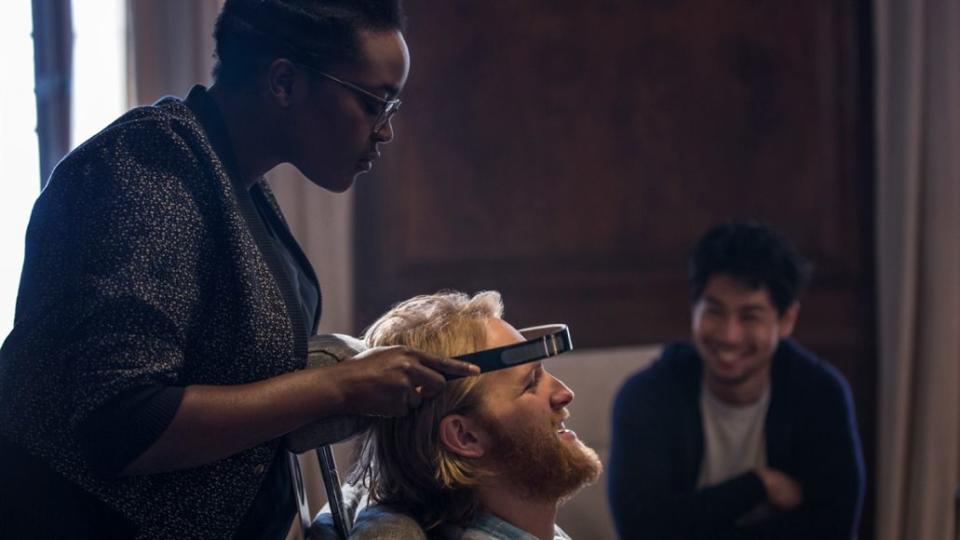
Black Mirror (Netflix)
There are scary episodes of Black Mirror, and then there’s “Playtest.” This Season 3 episode imagines an augmented reality video game that presents the subject’s deepest and darkest fears — in “Playtest,” there are various options for protagonist Cooper (Wyatt Russell), but the most significant is being forgotten by his mother. As we follow Cooper’s attempts to make sense of and confront his fears, the most terrifying aspect is his complete lack of control over his own reality. Russell fully commits with a tour-de-force horror performance, and the various levels of anguish he depicts are not just compelling, but incredibly difficult to pull off on camera. To this day, its painful ending is one of Black Mirror’s nastiest twists. — P. Ragusa
06. “Shut Up and Dance” (Season 3, Episode 3)
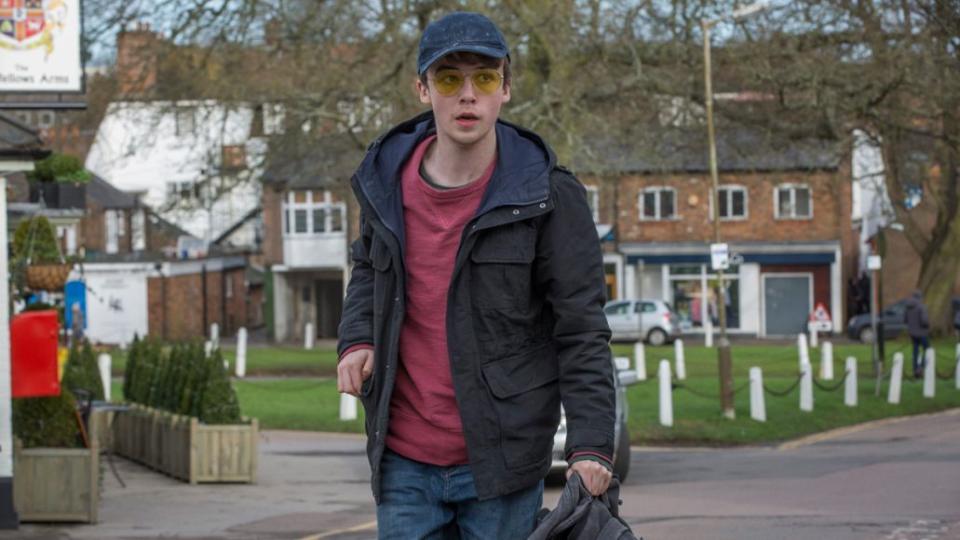
Black Mirror (Netflix)
A particularly fucked up episode in a series famous for its fucked up episodes, “Shut Up and Dance” accomplishes everything a good installment of Black Mirror should. Technology at the root of the conflict? Check. Morally ambiguous or corrupted protagonists? Check. A twist ending that completely redefines the entirety of the plot up to that point? Big ol’ checkarooni. Throw in one of the best Radiohead needle drops of all time, and you have a pretty damn solid episode of prestige television (slightly cringy use of the Trollface notwithstanding). — J. Krueger
05. “Hang the DJ” (Season 4, Episode 4)
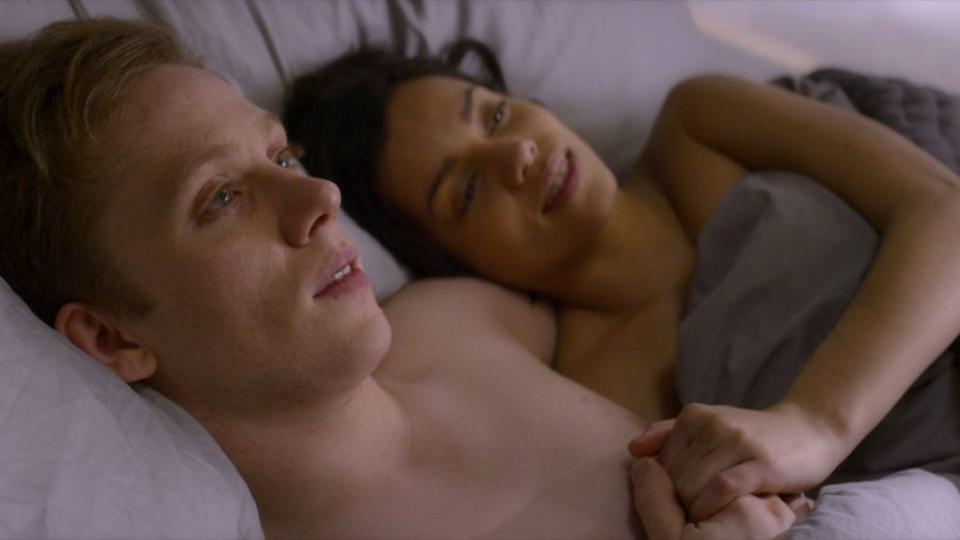
Black Mirror (Netflix)
“Hang the DJ,” another one of the brighter Black Mirror episodes, is Charlie Brooker working at the top of his storytelling intelligence. We talk at length about “algorithms,” the ways in which our “For You Page” seems to know our every move, interest, and personality trait, and there’s a lot of subtle manipulation and cynicism devoted to our discourse. “Hang the DJ,” though, attempts to explain why those computerized determinations can actually matter. If a dating app profile is a “99.8% match,” where could that number possibly come from? How many realities were tested, and what is the exact weight of each compatible detail? “Hang the DJ” shows that Black Mirror can envision not just grim realities of technology’s future, but the joy and wonder technology can bring — even if we can only see the surface. — P. Ragusa
04. “Nosedive” (Season 3, Episode 1)
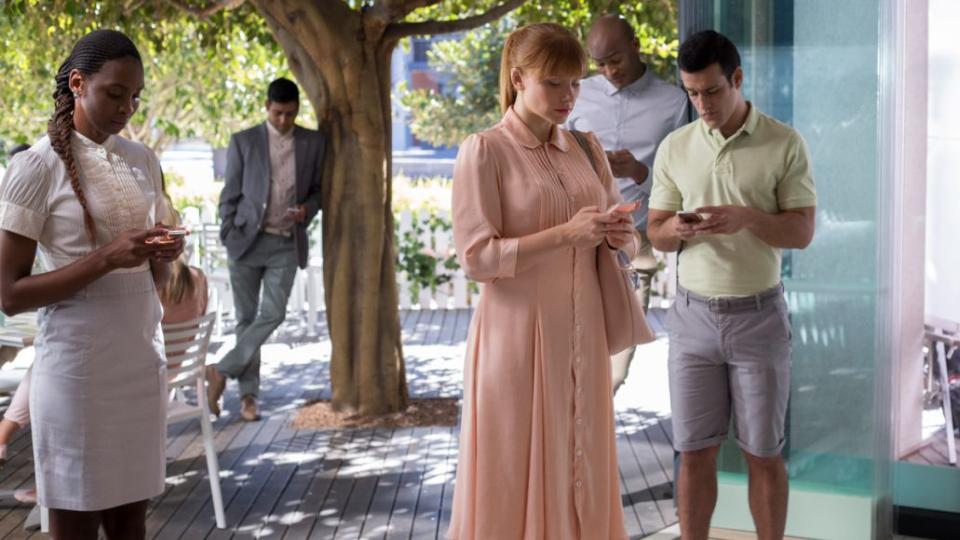
Black Mirror (Netflix)
One of those episodes that feels uncomfortably prophetic, “Nosedive” aired in 2016, depicting a world where general social status is determined by the equivalent of your social media presence. As with most premises in Black Mirror, this episode takes the concept to the extreme, and the result is one of the most relatable stories from the show. Bryce Dallas Howard knocks it out of the park as our increasingly unhinged and obsessive protagonist — and, for those who don’t know, the teleplay for the episode was co-written by NBC comedy legend Michael Schur and actress Rashida Jones. While there’s no wild twist to be found here, the aesthetics and relatability of “Nosedive” keep it top of mind all these years later. — M. Siroky
03. “USS Callister” (Season 4, Episode 1)
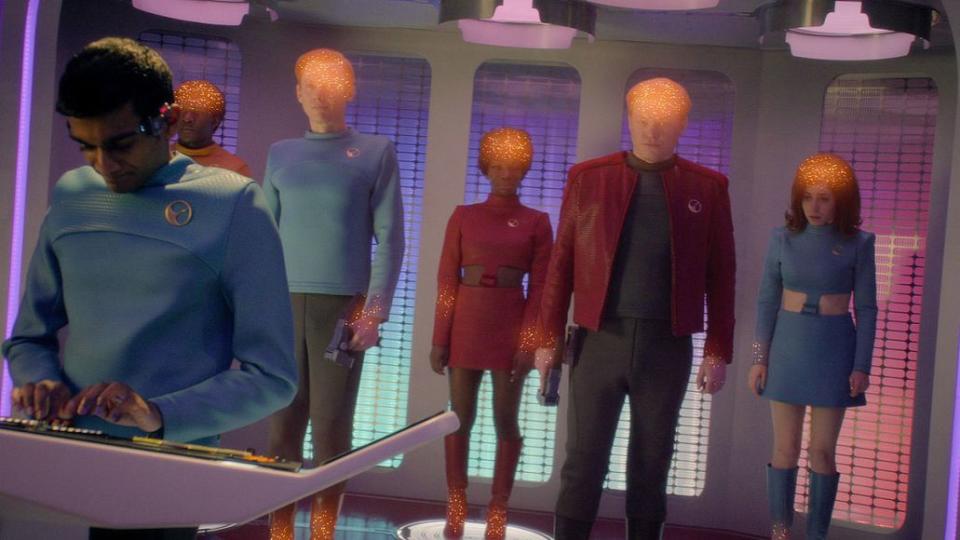
Black Mirror (Netflix)
There are many twists and turns to be found within the catalog of Black Mirror, but the one found in “USS Callister” is one of the best. The star-studded digital space adventure, which features a fantastic Jesse Plemmons, Christin Milioti, Jimmi Simpson, Michaela Coel, and Billy Magnussen, looks and feels different from many other episodes (thanks to the complex homage being paid to Star Trek), but its themes of autonomy and technology ring true to the thesis of the show.
While there are a few stressful and overtly creepy moments in “USS Callister,” the talented cast also brings so much humor to the adventure, which stretches an hour and 15 minutes. The overtly referential costuming, bright tones, and pitch-perfect score tie together with the collection of great performances to create a truly memorable entry. — M. Siroky
02. “White Bear” (Season 2, Episode 2)
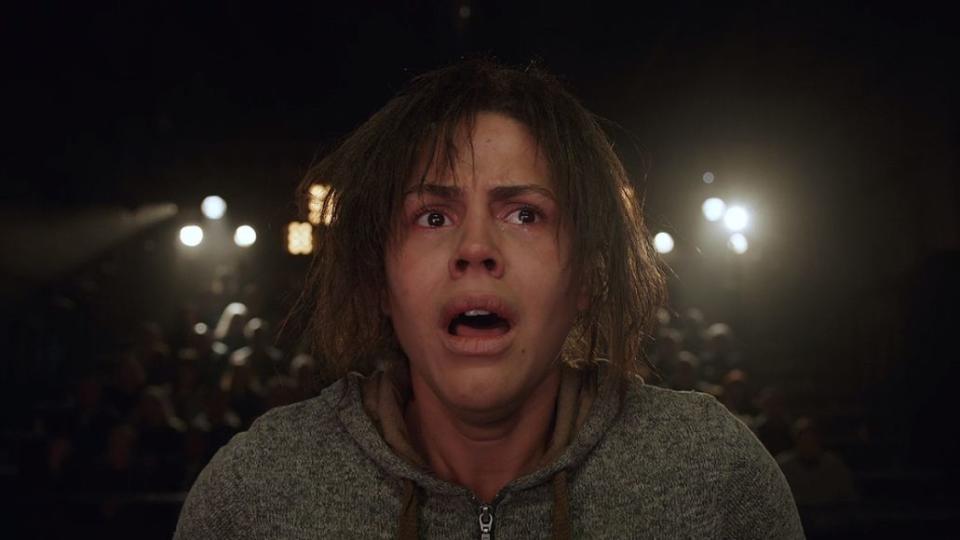
Black Mirror (Netflix)
“White Bear” is about fear and empathy, and how neither emotion is simple. The fear is a giddy cocktail of reactions: adrenaline from people trying to hurt Victoria (Lenora Crichlow), the confusion and distress of her amnesia, and the creeping horror as strangers’ film her and refuse to help. If “White Bear” were nothing more than a genre exercise, it would still deliver a rollercoaster’s worth of thrills.
But after the rug is pulled out from under both Victoria and the audience, “White Bear” forces us to interrogate our own emotions. Empathy, which had seemed so simple as she fled her pursuers, becomes a distressingly vast concept, and questions about justice and guilt linger long after the credits wrap.. — W. Graves
01. “San Junipero” (Season 3, Episode 4)
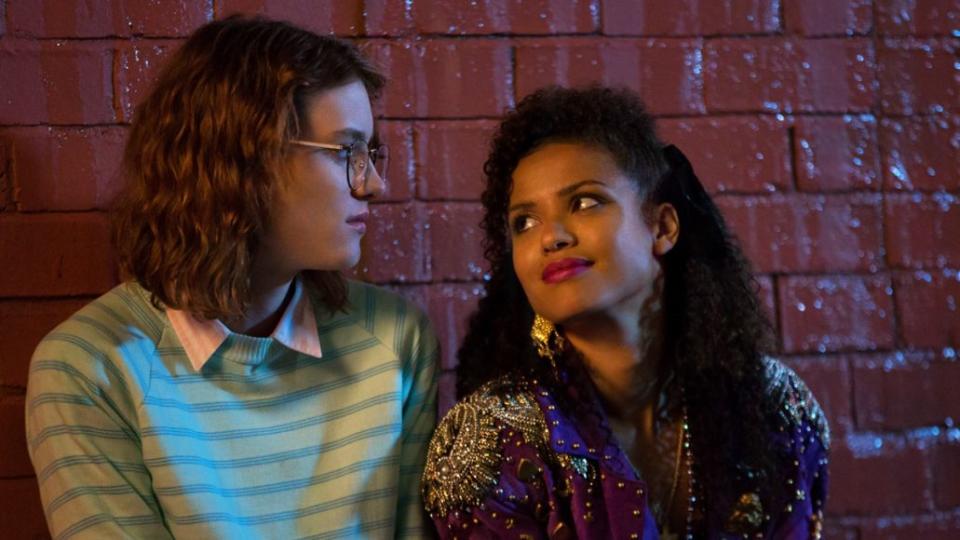
Black Mirror (Netflix)
For a series that provides a bleak, unflinching look at the biggest questions of humanity, “San Junipero” is one of its brightest creations. It’s not the first Black Mirror episode to touch upon the afterlife, nor the last, but it does feel singular to the rest of the show. “San Junipero” follows two women as they develop an intimate relationship across subsequent nightclub visits in the fictional San Junipero, but the episode’s twist shows that San Junipero is a simulated reality for the dead and elderly, designed to make the transition more peaceful.
Often in Black Mirror episodes, the twist adds a layer of illuminated chaos, but in “San Junipero,” it aids the fulfillment of these characters with warmth and satisfaction. It’s a fantasy to ponder what a second life would be like — getting to start all over again, forge new relationships, and become the person you always wanted to be. On “San Junipero,” for their two leading characters, watching them get that chance is enough to make your eyes well up. — P. Ragusa
All six seasons of Black Mirror are streaming now on Netflix.
A Definitive Ranking of Every Black Mirror Episode
Consequence Staff
Popular Posts
Rick Astley Performed a Full Set of The Smiths' Songs At Glastonbury: Watch
Queens of the Stone Age Turn Glastonbury Into an Epic Mosh Pit
Judas Priest's Rob Halford Supports Josh Kiszka After Greta Van Fleet Singer Comes Out
Jason Scott Lee Reveals Live-Action Lilo & Stitch Cameo Role: "I Just Wanted to Be a Part of It"
Korn Are (Finally) Partnering with Adidas on a Sneaker Collab: Report

